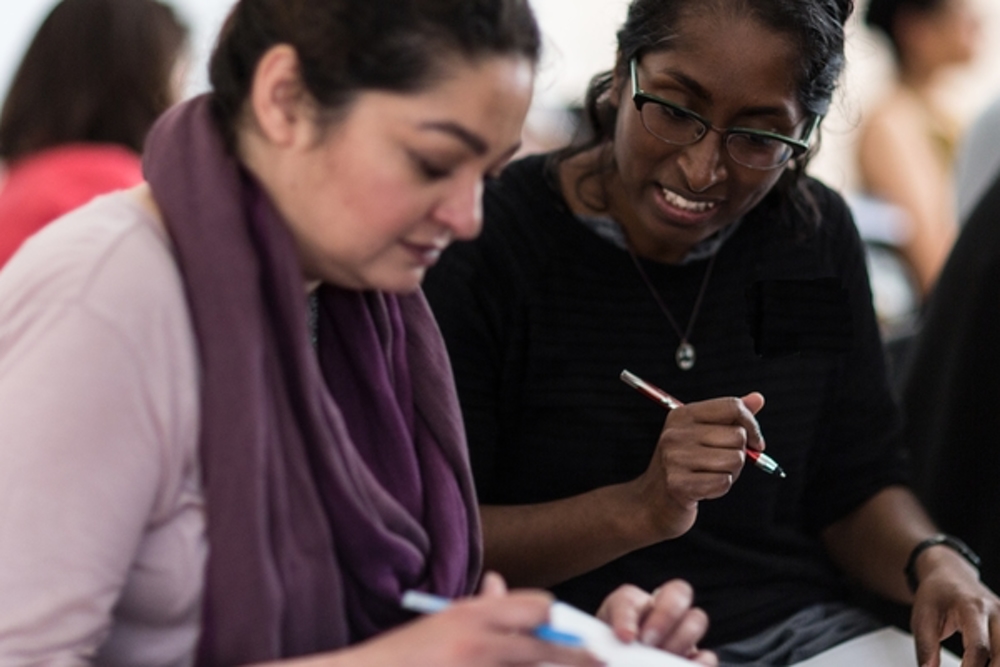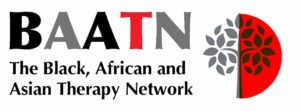
BAATN Gathering
Student Gatherings
These groups are for those of Black, African, South Asian and Caribbean heritage who are training to become psychotherapists and counsellors.
Monthly ⋅ Online
Outline
These groups are for those of Black, African, South Asian and Caribbean heritage who are training to become psychotherapists and counsellors. These gatherings are also open to student therapists of colour who are affected by prejudice due to the colour of their skin and global white power.
Students who have completed their course and are working towards registration are also invited.
Facilitators
Poppy Bannerjee, Patricia Rea Woodhouse, Mickey Peake
GATHERING STATEMENT OF PURPOSE
Read the Statement of Purpose for all our gatherings.
Venue
Online meeting via Zoom
Zoom is free to download and use.For more information about Zoom click here.
To download Zoom free of charge click here.
Time:
10:30am – 1:00pm
Dates
26 August 2023
23 September 2023
14 October 2023
18 November 2023
16 December 2023
10 February 2024
9 March 2024
6 April 2024
11 May 2024
8 June 2024
13 July 2024
10 August 2024
Cost
Free to Psychological Therapist Members and Student Therapist Members, £10 for Non-members.
(Click here to become a member)
Booking Conditions
- Bookings can be made any time up until 15 minutes before the event.
- Only the next two upcoming dates will be open for registration at any one time.
- If you have difficulty booking, email the events administrator
- If an event is full, email the events administrator to go on the waiting list. If a place becomes available before 5 pm on the day before the event, priority will be given to those at the top of the waiting list.
Full payment will need to be made to guarantee a place.
What delegates have said:
“I was touched and encouraged to press forward on my course and brought to a place of deeper appreciation of my particular learning environment.”
“I can see myself training in counselling with the support of such a group.”
“It was a safe space for me to be vulnerable.”
“Gives me the strength, inspiration and encouragement to continue and qualify.”
“An inspiring gathering of counselling and psychotherapy students ranging from those who had just started their course to those who were nearing the end of their course and writing dissertations. The gathering included both newcomers and regulars. It was my pleasure to watch them listening to each other, validating each other’s experiences, sharing information and offering each other support.”
“I totally enjoyed the support groups. I found them safe to disclose and share my experience in, which was a huge area of disappointment, judgement and pain for me whilst training. The group felt more like fellowship which had a beautiful aura about it and I found the input from my peers informative. I made some wonderful friends and have kept in contact with them ever since.”
“The theories were really interesting, but also a huge shock, we are not taught about the “real” impact for BME therapists and client relations on our course.”
“My experience of the groups was richly rewarding and very unique. Hearing others experience of training to be counsellors or personal brought new things into my awareness. The group itself being Black and Asian was incredibly new to me and hit so many parts of me that others have difficulties understanding.”
“The group I attended provided a lot of theoretical thinking. I particularly enjoyed culture scripts and the work of Isha Mavinga-Mckenzie on Recognition Trauma, which supported me in training. All handouts and book recommendations led me to further awareness of my own process and clients.”
“I found it very useful and supportive to cope with what I perceived to be defensive behaviour amongst white peers when race was raised for discussion, and I felt myself isolated and seen as a ‘troublemaker’ as I was determined that race would not be brushed under the carpet. It helped me to deal with my anger, stay reasonably objective and understand that white reaction in my classes was not personal. It was also useful to learn from the facilitators that the way race was responded to or for that matter, taught on courses, has not changed much in the last 20 years or so.”
